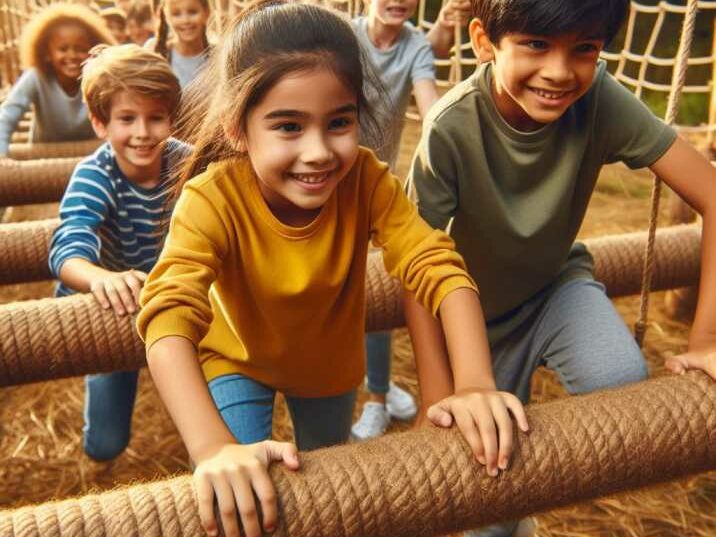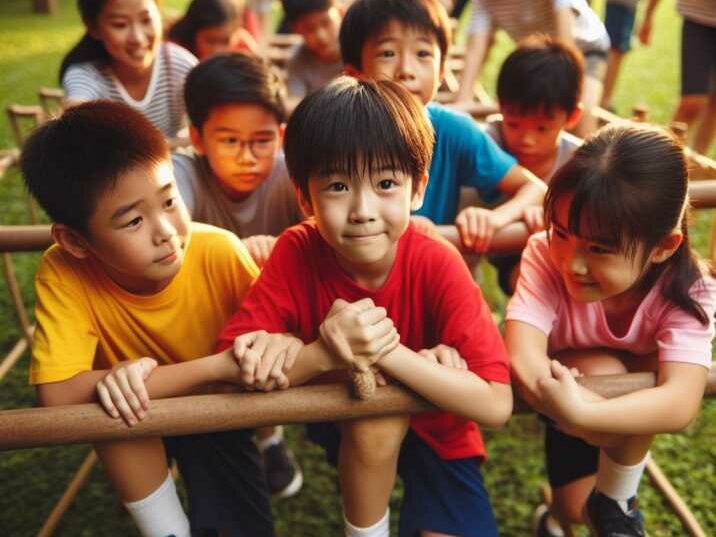The Benefits of Obstacle Course Training for Martial Arts Competitions
Table of Contents
Introduction
In a world where physical fitness and mental resilience go hand in hand, parents are increasingly seeking ways to prepare their children for the challenges ahead. One unconventional yet highly effective method gaining traction is obstacle course training. This article explores the profound impact of obstacle course training on kids and how it serves as a robust foundation for success in martial arts competitions.

The Power of Obstacle Course Training
What sets obstacle course training apart?
Obstacle course training goes beyond the conventional methods of physical fitness. It involves navigating through a variety of challenges, fostering a unique set of skills that prove invaluable in martial arts competitions. From enhancing agility to building mental fortitude, this form of training lays the groundwork for success.
Developing Agility and Coordination
How does obstacle course training contribute to agility?
One of the primary benefits of obstacle course training is the development of agility and coordination. As kids navigate through various obstacles, they naturally enhance their ability to move swiftly and coordinate their movements—a crucial aspect in martial arts competitions where quick reflexes can make all the difference.

Building Mental Resilience
Why is mental resilience essential in martial arts?
Martial arts competitions demand not just physical prowess but also mental resilience. Obstacle course training challenges kids to overcome obstacles, teaching them to stay focused under pressure. This mental toughness proves to be a valuable asset when facing opponents in the martial arts arena.
Instilling Discipline and Focus
How does obstacle course training contribute to discipline?
Discipline is a cornerstone of success in any endeavor, and martial arts is no exception. Obstacle course training for martial arts instills discipline by requiring kids to follow a structured routine, focus on their goals, and overcome obstacles with determination—a mindset that translates seamlessly to martial arts competitions.
Unveiling the Unique Benefits
What are the specific benefits of obstacle course training for martial arts?
The benefits of obstacle course training for martial arts extend beyond physical fitness and mental resilience. This section delves into the unique advantages that make this training method a standout choice for preparing kids for martial arts competitions.
Conclusion
In conclusion, obstacle course training emerges as a dynamic and effective method for obstacle course training for martial arts competitions. From fostering agility to building mental resilience, this unique approach equips young warriors with the skills and mindset needed to thrive in the competitive world of martial arts.

Frequently Asked Questions (FAQs)
- Is obstacle course training suitable for all age groups?
- Yes, obstacle course training can be adapted to various age groups, providing age-appropriate challenges.
- How often should kids engage in obstacle course training?
- The frequency of training depends on the child’s age and fitness level, but consistency is key.
- Can obstacle course training replace traditional martial arts training?
- While it offers unique benefits, it is recommended to complement traditional martial arts training with obstacle course sessions.
- What equipment is needed for setting up an obstacle course at home?
- Simple items like cones, ropes, and agility ladders can be used to create a basic obstacle course at home.
- Are there specific techniques taught during obstacle course training?
- Yes, techniques vary and may include crawling, jumping, and balancing exercises tailored to improve overall physical abilities.
- How can parents ensure the safety of their kids during obstacle course training?
- Supervision, proper equipment, and age-appropriate challenges are crucial for ensuring a safe training environment.
- Can obstacle course training improve a child’s confidence?
- Yes, overcoming obstacles and achieving goals in training contribute to increased self-confidence.
- Is there a recommended age to start obstacle course training for martial arts preparation?
- Children as young as 5 or 6 can begin basic obstacle course training, gradually advancing as they grow.
- Do the benefits of obstacle course training extend to academic performance?
- Research suggests that physical activity, including obstacle course training, can positively impact cognitive function and academic performance.
- Can obstacle course training be adapted for children with special needs?
- Yes, with proper modifications and guidance, obstacle course training can be inclusive for children with special needs.
- What role does teamwork play in obstacle course training for kids?
- Team-based obstacle courses promote collaboration, communication, and teamwork skills among children.
- Are there competitive events specifically for obstacle course training for kids?
- Some organizations host obstacle course competitions for children, providing a platform to showcase their skills.


